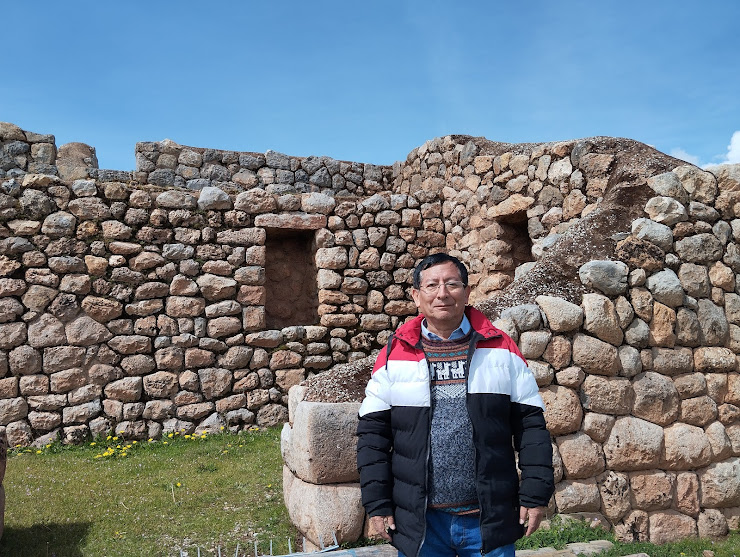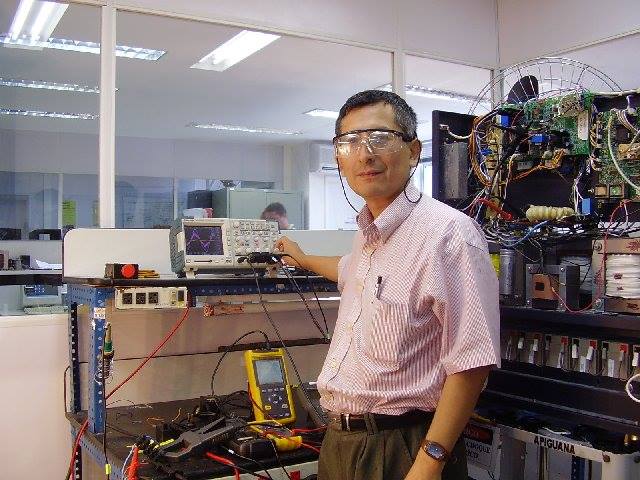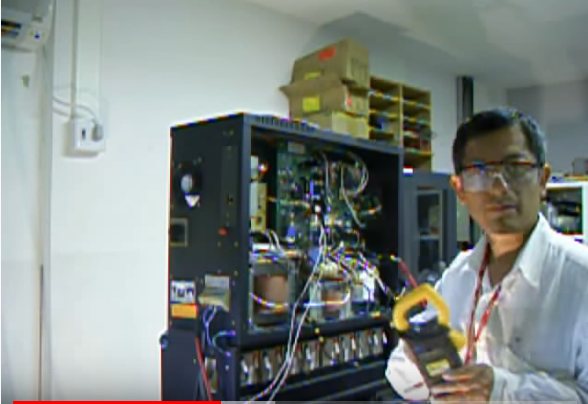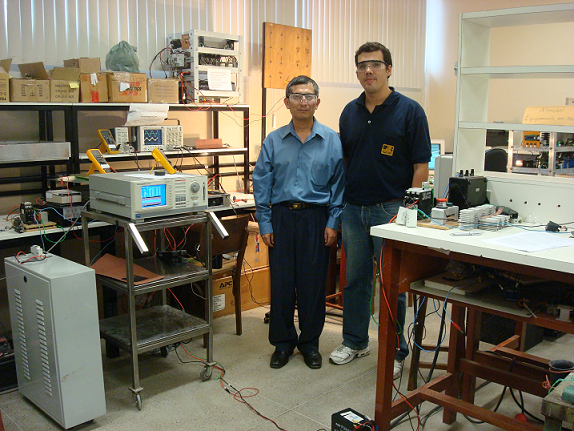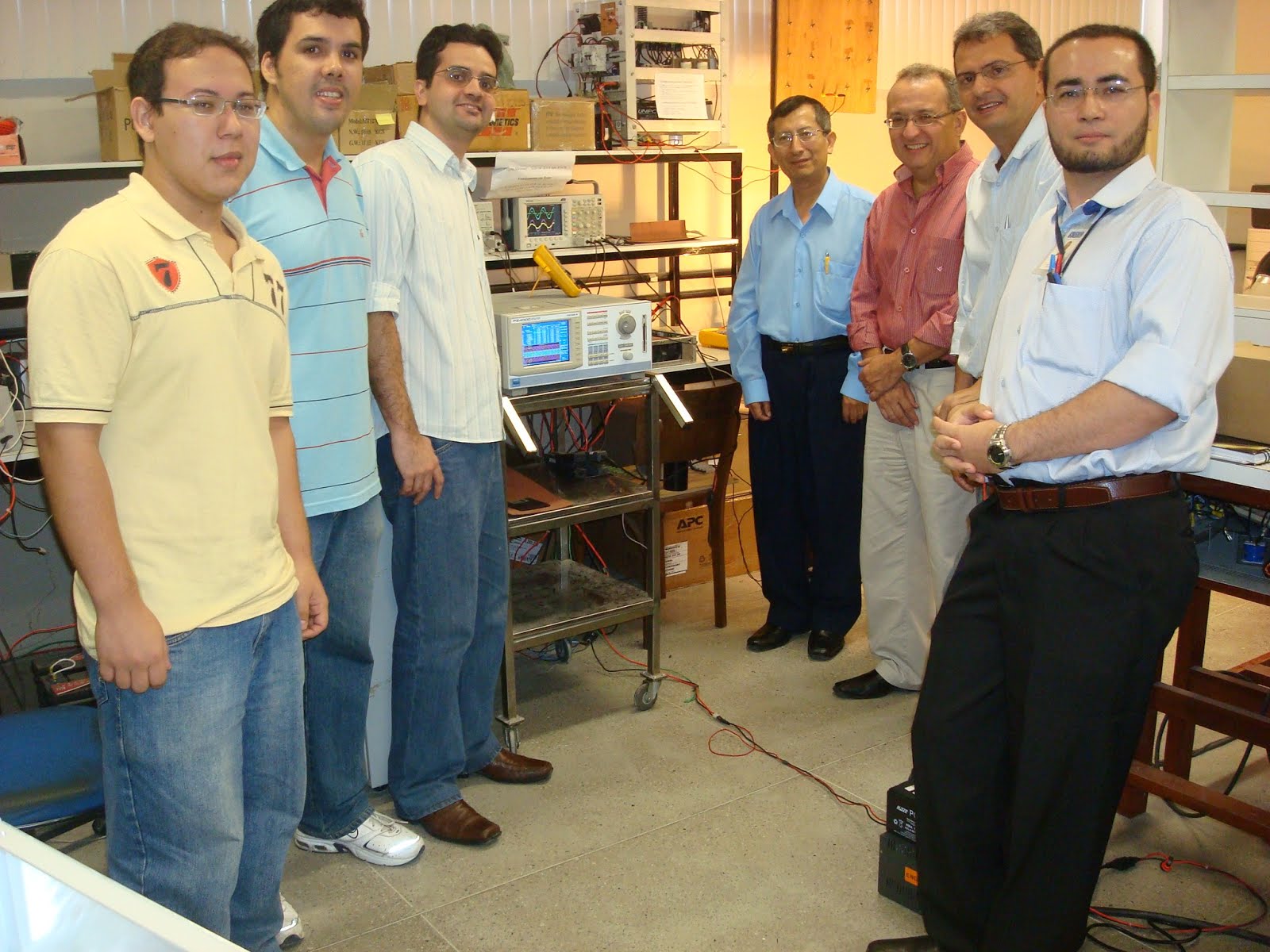quarta-feira, 12 de dezembro de 2012
Control of Power Inverters in Renewable Energy and Smart Grid Integration
Dr. Qing-Chang Zhong Qing-Chang Zhong received the Ph.D. degree in control theory and engineering from Shanghai Jiao Tong University, Shanghai, China, in 1999, and the Ph.D. degree in control and power engineering (awarded the Best Doctoral Thesis Prize) from Imperial College London, London, U.K., in 2004.
He holds the Chair Professor in Control and Systems Engineering at the Dept of Automatic Control and Systems Engineering, the University of Sheffield. He is a Fellow of IET (2010) and a Senior Member of IEEE (2004). He is an Associate Editor of IEEE Transactions on Power Electronics and of the Conference Editorial Board of IEEE Control Systems Society. He is a Vice Chair of IFAC TC 6.3 (Power and Energy Systems) and IFAC TC 2.2 (Linear Control Systems), and has been on the Program Committees of many international conferences. He was awarded one of the seven Leverhulme Trust Senior Research Fellowships in 2009 by the Royal Academy of Engineering, UK. He has attracted over £2M research funding from EPSRC, RAEng, TSB, and industrial companies etc during the last five years. His current research focuses on advanced control theory, power electronics, renewable energy, smart grid integration, electrical vehicles and control applications in other industrial sectors. The details of some of his projects can be found from http://zhongqc.staff.shef.ac.uk.
domingo, 9 de dezembro de 2012
FORUM Energy Future Keio University and the Embassy of Canada
Collaboration between Keio University and the Embassy of Canada concerning a Forum on Energy Future
Canada-Japan collaboration for Leading Research on Hydrates.
Energy Future(Sept.21.2011)1/11
Professor, Faculty of Science and Technology, Keio Univ.
Director, Keio Leading-edge Laboratory of Science and Technology
UEDA, Toshihisa
Minister(Commercial), Embassy of Canada
Paul J. Thoppil, C.A.
Professor and Vice-President, Keio University
MAKABE, Toshiaki
http://www.kll.keio.ac.jp/seminar/hydrate.html
quinta-feira, 6 de dezembro de 2012
sexta-feira, 30 de novembro de 2012
PERUVIAN ELECTRIC ENGINEERS IN BRAZIL
MARCOS J. RIDER FLORES was born in Lima, Peru; in 1975. He received his BSc (with honors) and the Professional Engineer (PE) degrees in 1999 and 2000, respectively, from National University of Engineering ( UNI), Faculty of Electrical and Electronics Engineering ( FIEE), Lima, Peru; his MSc degree in 2002 from the Federal University of the Maranhao ( UFMA), Brazil, and his PhD degree in 2006 from University of Campinas ( UNICAMP), Brazil, all in electrical engineering. Currently he is carrying out post doctorate at the State University of Campinas, Brazil. His professional experience include several research projects, international consultings and technical papers publications. His areas of research are the development of methodologies for the optimization, planning and control of electrical power systems and applications of artificial intelligence in power systems. He is Member of the Institute of Electrical and Electronics Engineers (IEEE).
Rubén Augusto Romero Lázaro
Universidade Estadual Paulista (UNESP). Campus de Ilha Solteira. Faculdade de Engenharia
(Instituição sede da última proposta de pesquisa)
País de origem: PERU
Possui graduação em Ingenieria Eléctrica - Universidad Nacional de
Ingenieria (1978), mestrado em Engenharia Elétrica pela Universidade
Estadual de Campinas (1990) e doutorado em Engenharia Elétrica pela
Universidade Estadual de Campinas (1993). Faz trabalhos de pesquisa na
área de Engenharia Elétrica, com ênfase em otimização da operação e o
planejamento de sistemas de transmissão e distribuição de energia
elétrica com destaque nos temas: planejamento de sistemas de
transmissão, otimização de sistemas de distribuição, programação linear e
não linear, programação inteira, fluxo de carga radial, alocação ótima
de bancos de capacitores, reconfiguração de alimentadores em sistemas de
distribuição de energia elétrica e teoria e aplicação de
metaheurísticas. Em março de 2012 apresenta 38 artigos em periódicos
internacionais indexados pelo ISI (33 deles tipo IEEE ou IEE). Também
apresenta 912 citações pelo ISI e um fator de impacto H igual a 18.
Atualmente é pesquisador 1B do CNPq e Senior Member do IEEE. (Fonte:
Currículo Lattes)
domingo, 25 de novembro de 2012
RISAT-1 Satellite launched using India's Polar Satellite Launch Vehicle [PSLV-C19 mission]
RISAT-1 is a Radar Imaging Satellite designed & built by the Indian Space Research Organisation [ISRO]. The satellite gives its operator [India] the capability to carry out surveillance under all conditions - day, night & also cloudy. Besides carrying out activities that have socio-economic benefits, the satellite can also be put to use to conduct missions having relevance to National security.
The satellite was successfully launched on April 26, 2012 using India's Polar Satellite Launch Vehicle [PSLV]. This launch makes it PSLV's 20th consecutive launch success.
Megha-Tropiques satellite launch using India's Polar Satellite Launch Vehicle [PSLV C-18]
Megha-Tropiques satellite has been jointly developed & built by the India Space Research Organisation [ISRO] & the French Centre National d'Études Spatiales to study rainfall, in general, & water cycle, in particular.
The other piggyback satellite payloads that were also successfully launched in this mission included Vesselsat-1, SRMSat & Jugnu
The launch took place at 1100 hrs IST from the Shriharikota Spaceport in India on October 12 2011 using India's indigenous satellite launcher, the Polar Satellite Launch Vehicle [PSLV C-18].
Centre National d'Études Spatiales [CNES]
http://www.cnes.fr/web/CNES-en/7114-home-cnes.php
http://en.wikipedia.org/wiki/CNES
Indian Space Research Organisation [ISRO]
http://www.isro.org/
http://en.wikipedia.org/wiki/ISRO
Assinar:
Postagens (Atom)












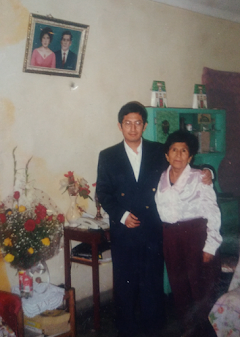





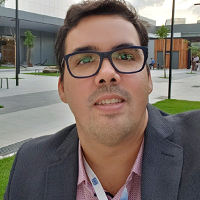
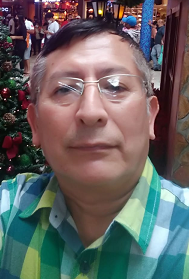




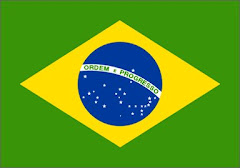
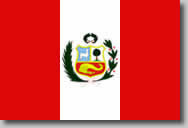






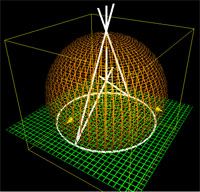


 JOSIL ARTISTA PLASTICO FORTALEZA CEARA BRASIL AV.HERACLITO GRAÇA 41 TEL(85)32542378
JOSIL ARTISTA PLASTICO FORTALEZA CEARA BRASIL AV.HERACLITO GRAÇA 41 TEL(85)32542378